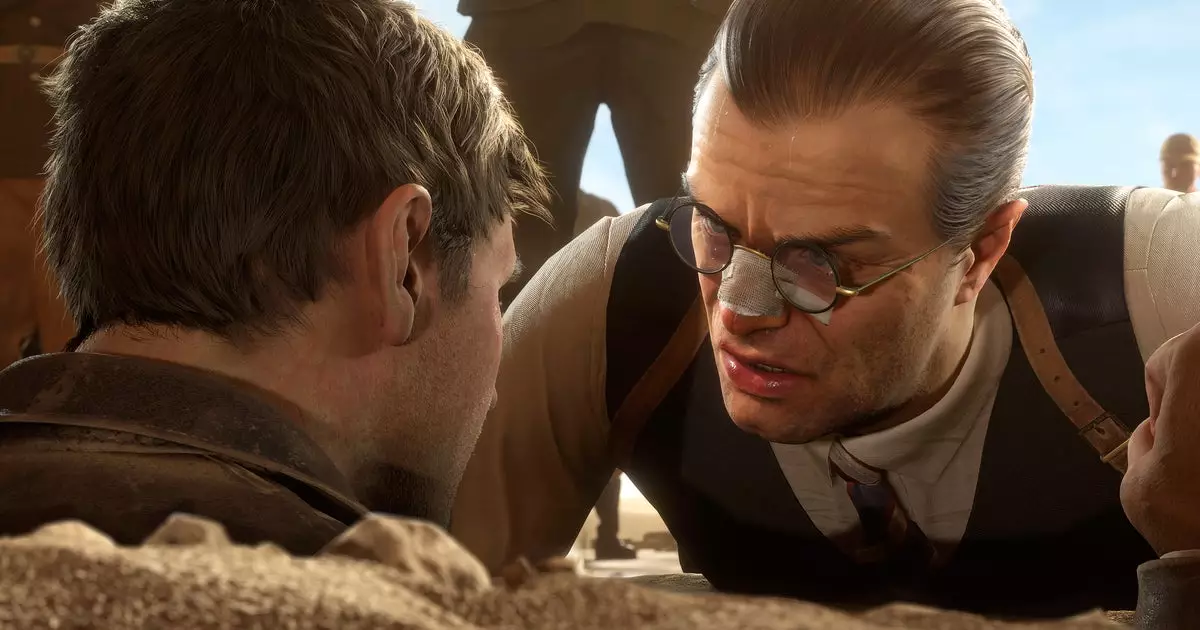Escapism has long served as a sanctuary for audiences seeking refuge from the trials of reality, yet it can also tread dangerously close to problematically simplistic portrayals of real historical atrocities. The latest installment in the beloved Indiana Jones franchise, titled “Indiana Jones and the Great Circle,” raises intriguing questions about how historical conflict is depicted in video games while navigating perceptions of glorification versus condemnation.
At first glance, Indiana Jones embodies the quintessential hero archetype, standing staunchly against the evil forces of the Nazi regime during World War II. His iconic exclamation, “Nazis? I hate these guys!” from “Raiders of the Lost Ark,” establishes a clear moral dichotomy; he is unequivocally positioned as an enemy of fascism. The franchise, known for its rich narratives and adventurous escapades, presents audiences with a protagonist whose disdain for the German National Socialist Party seems unmistakable. However, beneath this straightforward portrayal lies a complicated web of narrative elements that presents challenges to the integrity of its anti-Nazi stance.
Though the character’s encounters with Nazi figures might imply an unequivocal adversarial role, instances exist where the lines blur. For example, Indiana’s accidental romantic involvement with a Nazi and an unforeseen impersonation of an SS officer at a gala demonstrate a nuanced and, arguably, careless engagement with the very enemy he ostensibly opposes. Such incidents raise questions about whether the game reinforces or undermines the very ethics it seeks to promote.
As video games continue to explore sensitive subject matter, the introduction of disclaimers has become a common practice among developers. The launch of “Indiana Jones and the Great Circle” comes with a notable disclaimer that insists the game’s content does not condone or glorify the ideologies and actions of the Nazi regime. This legal maneuver seems to reflect a broader societal need for accountability in storytelling, especially within the interactive medium where player agency can lead to unintended interpretations of violence against historical figures.
The disclaimer’s explicit insistence against glorifying Nazi ideologies feels somewhat performative given that the gameplay focuses on a graphic depiction of shooting and fighting against soldiers of the Third Reich. Such contradictions can provoke backlash or misinterpretation among audiences, particularly in today’s climate of rampant misinformation. The potential for misusing content—be it through memes or modifications—poses a risk where a game aiming to denounce hate can inadvertently become a tool for propagation.
Germany’s recent legal shift in permitting depictions of Nazis in video games illuminates a broader trend regarding the responsibility of creators. As stated, the law opens doors for artistic and historical representations, albeit with necessary caution. This brings to the forefront the quandary developers face: how does one create content that honors historical memory without slipping into a territory that may spawn sympathies or normalize extremist views? “Indiana Jones and the Great Circle” undeniably aims to frame itself within the artistic realm, embedding historical threads within a fantastical backdrop.
Yet, the challenge remains in striking a balance between providing an engaging narrative and respecting the families and communities impacted by genocide and hate crimes. It is crucial for creators to construct gameplay that invites players into critical engagement with historical events, rather than offering a simplistic lens where violence equates to virtue.
In the case of “Indiana Jones and the Great Circle,” the stakes are high as developers tread the fine line between being escapist entertainment and perpetuating problematic narratives. The combination of infectious adventure and dark historical themes remains a coveted formula. However, creators must engage with these concepts thoughtfully, ensuring that love for the escapist fantasy does not belittle the real suffering of those entangled in the historical narratives depicted. The gaming community must cultivate a dialogue that prioritizes mindful creation as it delights in its fantasy, bridging the gap between entertainment and respectful remembrance.


Leave a Reply
You must be logged in to post a comment.